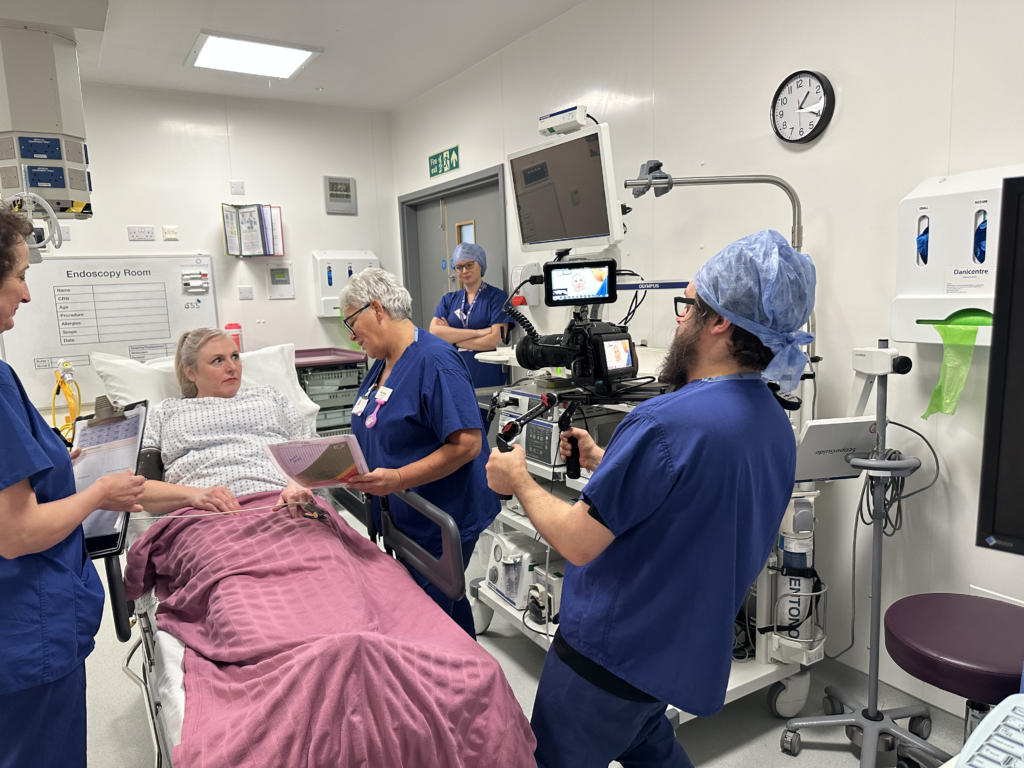Top 10 Tips for Effective Video Production in Healthcare
In today’s healthcare landscape, video content plays a critical role in educating patients, training medical staff, and promoting healthcare services. Whether it’s NHS films, surgical films, or general healthcare videos, effective video production is essential for conveying medical information clearly and engagingly. At Healthcare Films by Wildwood, we specialize in NHS video production and healthcare videography, helping healthcare organizations create impactful content. To ensure your videos are both professional and effective, here are the top 10 tips for successful video production in healthcare.

1. Understand Your Audience and Their Needs
The foundation of any successful healthcare video lies in understanding the audience. Are you creating NHS videos for patients, staff, or the public? Patients may need clear, simple explanations of medical procedures, while healthcare professionals might require more detailed, technical information. Knowing who you’re speaking to ensures the tone, content, and complexity of your video are aligned with their needs.
2. Keep It Clear and Concise
In healthcare, clarity is key. Whether you’re producing NHS films or surgery videos, your goal is to deliver information in a way that is easy to understand. Avoid using complex medical jargon unless necessary, and instead focus on simple, straightforward language that both patients and healthcare professionals can follow. The shorter and more focused your video, the more likely your audience will engage with it and retain the information.
3. Use High-Quality Visuals and Sound
Professional videography is essential for producing effective healthcare films. Low-quality visuals and sound can detract from the credibility of your content, especially in a medical environment where precision is critical. Invest in high-definition cameras, quality microphones, and proper lighting to ensure that every detail is captured clearly. For surgical films or surgery videos, clear visuals are particularly important for demonstrating complex procedures.
4. Plan the Script Carefully
A well-thought-out script is the backbone of any successful healthcare video. Take the time to plan your video carefully, outlining key points, the sequence of visuals, and what message needs to be conveyed. In NHS video production, this is especially important to make sure your videos provide all necessary information while maintaining a clear flow. Include pauses or breaks for emphasis, and ensure the script aligns with the tone of your video.
5. Choose the Right Videographer
Choosing the right videographer or video production team is critical, especially when it comes to healthcare videos. You need someone who understands the intricacies of the medical field and can handle sensitive topics with professionalism and empathy. At Healthcare Films by Wildwood, our videographers have years of experience working in healthcare environments, ensuring that your video production is both accurate and respectful.
6. Incorporate Patient Testimonials
Patient testimonials are a powerful tool in healthcare videography. Sharing real patient experiences in NHS films or healthcare videos can humanize medical procedures, build trust, and provide reassurance to others in similar situations. These personal stories can be especially effective when trying to convey the emotional side of healthcare, whether it’s a successful surgery or recovery after a procedure.
7. Use Visual Aids and Graphics
Visual aids such as animations, diagrams, and graphics can significantly enhance the effectiveness of healthcare videos. Whether you’re explaining a complex surgery or providing pre-operative instructions, using visual elements to illustrate key points helps patients and healthcare professionals better understand the content. For surgery videos, showing a 3D diagram of a surgical procedure, for example, can make it easier for both patients and staff to follow along.
8. Focus on Empathy and Tone
Healthcare videos often deal with sensitive topics, so it’s important to strike the right tone. A calm, empathetic voice can make a huge difference, especially in videos aimed at patients. Whether it’s an NHS video explaining a diagnosis or a surgery film showing a procedure, the tone of your video should be reassuring and compassionate. Avoid sounding too clinical or distant, as this can make patients feel more anxious or disconnected.
9. Optimize Videos for Searchability
In today’s digital world, having optimized healthcare films can help increase visibility and engagement. Make sure your NHS videos or surgery films are easy to find online by using relevant keywords, descriptions, and tags. If you’re creating educational videos, include searchable terms like “surgical procedures,” “patient care,” or “NHS services” to improve SEO. This will help your videos reach the right audience, whether they’re searching for medical advice or treatment options.
10. Test and Gather Feedback
Before finalizing any healthcare video, it’s crucial to test the content with a sample audience. Get feedback from medical professionals, patients, or staff to ensure your video communicates the intended message effectively. Is the content clear? Is the tone appropriate? Are there any areas that could be improved? Gathering feedback ensures that your video is both effective and impactful.
Conclusion
Effective video production in healthcare requires careful planning, high-quality equipment, and a clear understanding of your audience’s needs. Whether you’re producing NHS films, surgical films, or general healthcare videos, following these tips will ensure that your content is both informative and engaging. At Healthcare Films by Wildwood, we specialize in healthcare videography and media creation, helping healthcare organizations produce impactful videos that educate, inform, and connect with patients and professionals alike. Contact us today to learn more about how we can support your video production needs.
